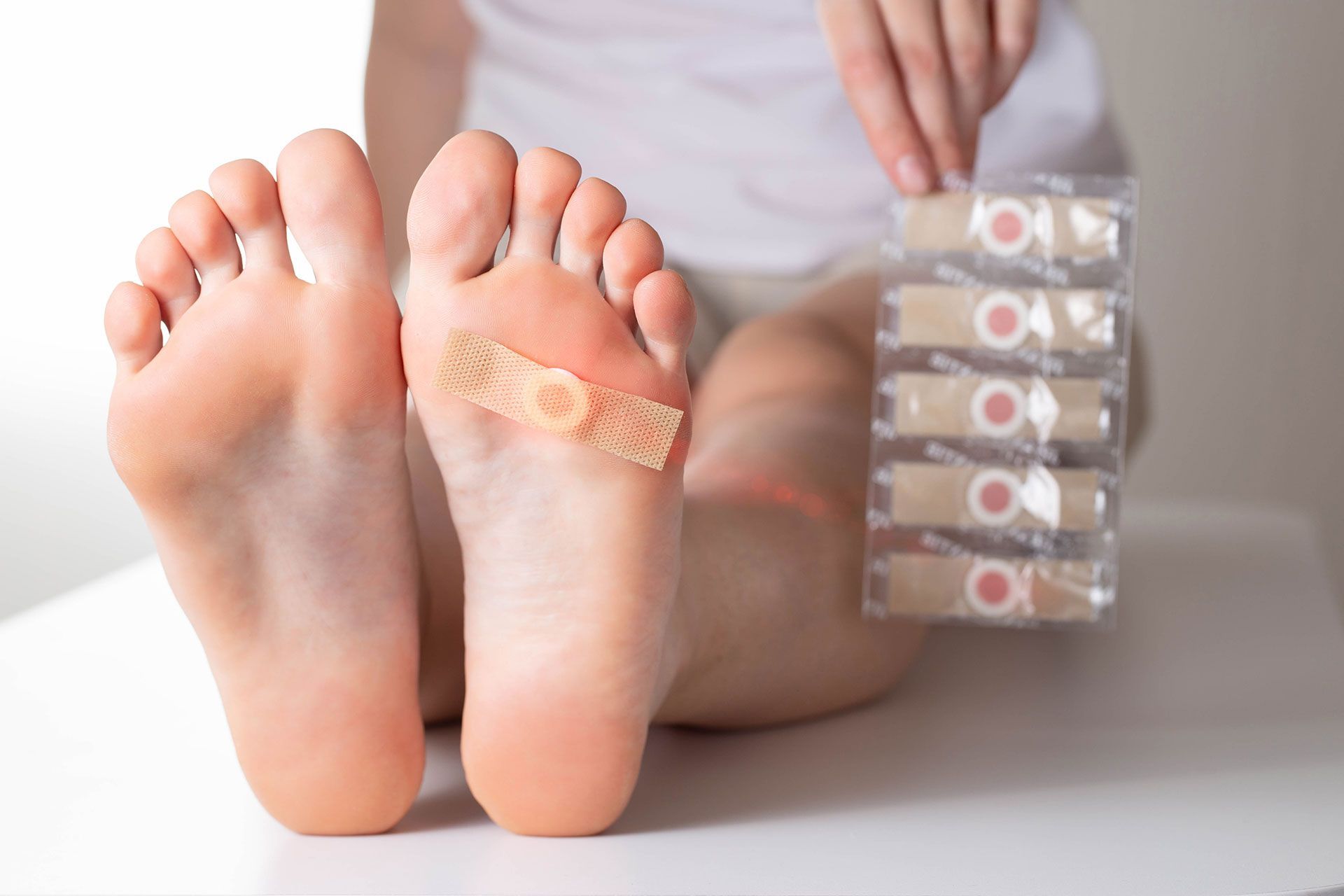Plantar Warts

Comprehensive Skin and Foot Care
Relief and Treatment for Painful Plantar Warts
Plantar warts are small, noncancerous growths that form on the bottoms of the feet, most often in areas that bear weight such as the heels or balls of the feet. They are caused by the human papillomavirus (HPV), which enters the body through tiny cuts, scrapes, or weak spots in the skin. Because the feet are under constant pressure from standing and walking, plantar warts often grow inward beneath layers of thickened skin or calluses, which can make them particularly uncomfortable. In addition to their rough, fleshy appearance, plantar warts may cause sharp pain or tenderness when pressure is applied, making it difficult to walk, run, or stand for long periods. Although they are generally harmless, untreated plantar warts can become persistent, spread to other areas, or interfere with daily activities, making early treatment important for relief and prevention.
Causes and Risk Factors
Plantar warts are caused by HPV, a common virus with more than 100 strains. Only a few types are responsible for warts on the feet, while others affect different areas of the body. You may be at higher risk if you:
- Walk barefoot in public places like locker rooms, pools, or showers
- Have a weakened immune system
- Are a child, teenager, or young adult
- Have a history of plantar warts or frequent skin infections
Signs and Symptoms
Common symptoms of plantar warts include:
- Small, fleshy growths or rough lesions on the sole of the foot
- Pain or tenderness when walking or standing
- Thickened skin or calluses over a defined spot where the wart grows inward
- Black pinpoints (small clotted blood vessels) within the wart
- Disruption of normal skin ridges or lines on the foot
Diagnosis and Treatment
A podiatrist can usually diagnose plantar warts with a physical exam and may trim back callused skin to reveal the growth more clearly. Treatment depends on the severity of the wart and may include:
- Topical peeling medications, such as salicylic acid
- Cryotherapy (freezing the wart with liquid nitrogen)
- Laser therapy or surgical removal for resistant cases
- Prescription-strength topical or oral medications
- Vaccines or immunotherapy for recurring or stubborn warts
Prevention and Self-Care
To help prevent plantar warts:
- Avoid walking barefoot in public spaces
- Keep feet clean and dry, changing socks regularly
- Wear moisture-wicking socks and well-fitted shoes
- Do not pick or scratch warts to avoid spreading the virus
- Wash hands thoroughly after touching affected areas
Start Your Journey to Wellness Today
Talk With Foot and Ankle Specialist Today!
If you’re experiencing pain or discomfort from plantar warts, don’t wait for them to spread or worsen. Contact our office for a professional diagnosis and effective treatment options tailored to your needs.

